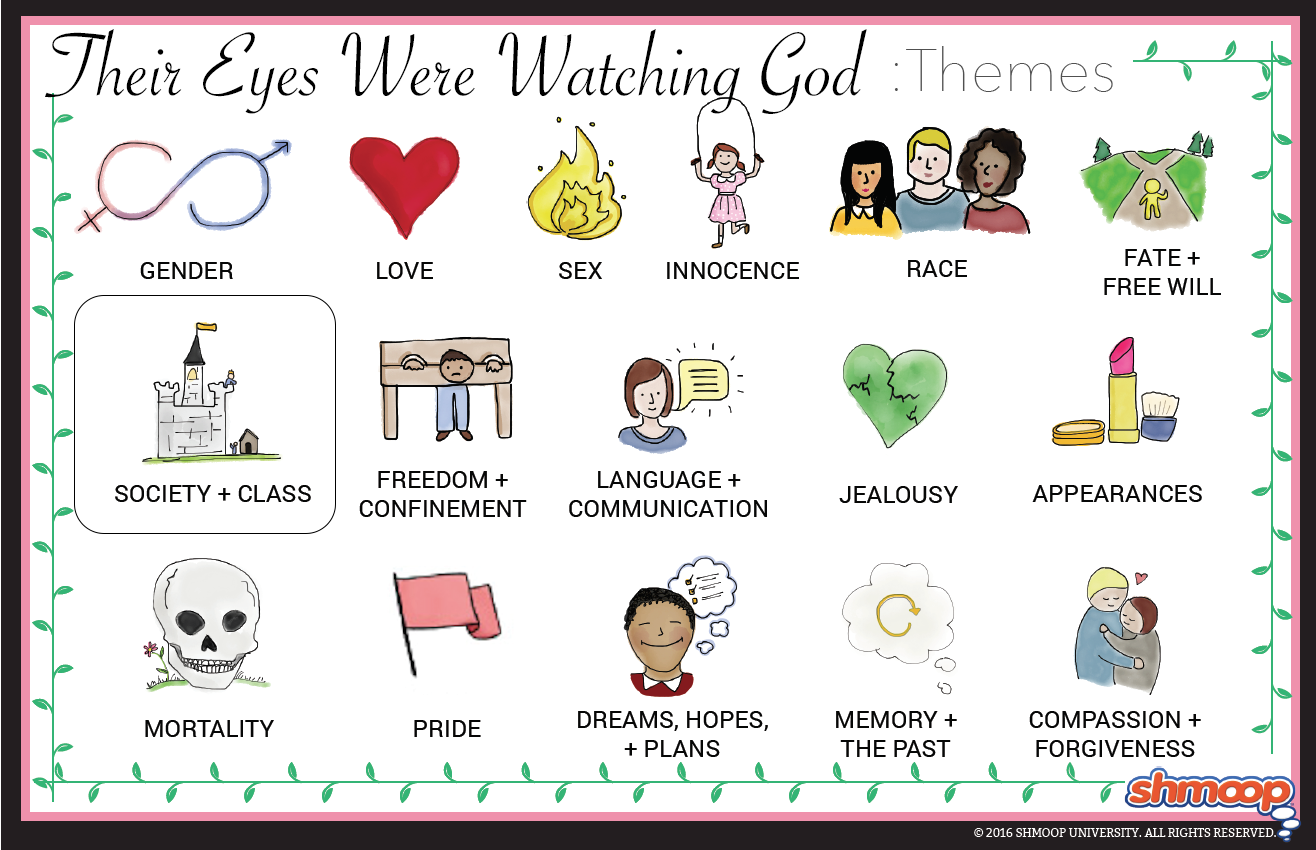 (Click the themes infographic to download.)
(Click the themes infographic to download.)
Social class is often closely tied to one’s material wealth. However, Their Eyes Were Watching God seems to draw an inverse relationship between one’s social class and one’s morality. The poorer working classes are often depicted as more honest and decent than the wealthier middle and upper classes.
With high social ranking comes power and the ability to manipulate less powerful people. While many aspire to move up the hierarchical ladder, the protagonist shows the folly of such ambitions; for her, a person’s position in society has no direct bearing on her happiness.
Questions About Society and Class
- How is race generally linked to class? Do white people occupy a higher class than black people? Which characters provide exceptions to the general rule?
- How did slaves’ positions as a sub class and not considered humans at all affect Nanny’s outlook on life? In what social class does she aspire to be included? What are the defining characteristics of this class? How does she impose this perspective on Janie?
- How does Janie’s appearance and relative wealth allow her to occupy (or seem to occupy) several different social classes in her lifetime?
- Why is Janie happy living with the lowest of the low social class—the migrant workers in the Everglades? What do they have that the higher social classes lack?
Chew on This
Of all the characters in the novel, Janie has the most social mobility as a result of her attractive looks.
In Their Eyes Were Watching God, the upper classes are fraught with pretension and jealousy, and they also have unsatisfying lives. The lower classes—like the migrant workers in the Everglades—on the other hand have fun, fulfilling lives.